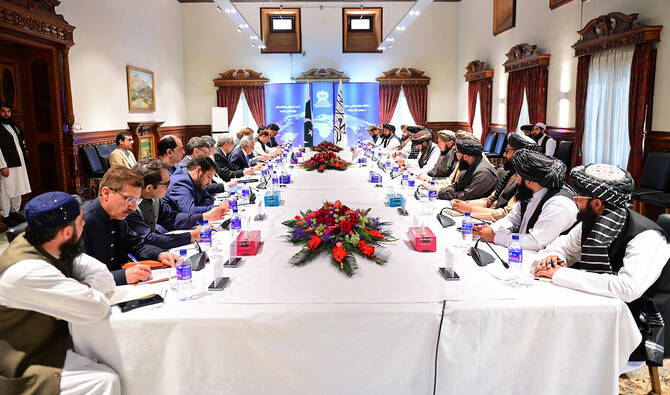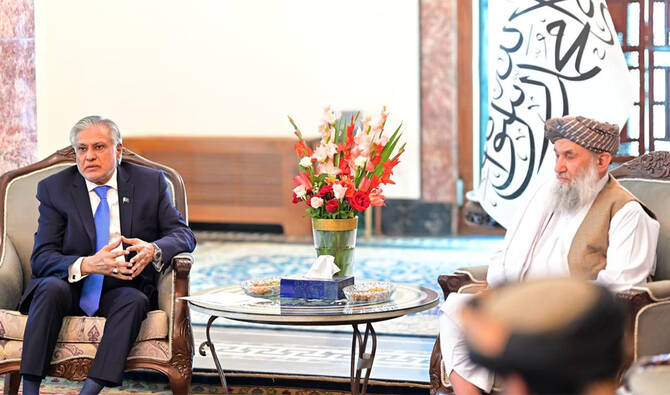NEW YORK: How many times have we heard the words inconsistent, unpredictable and chaotic used to describe the Pakistan men’s cricket team’s performances over the years?
The answer is numerous, although usually the description is followed by the qualification that the team are at their most dangerous when in that state.
In the wake of the team’s failure to progress to the Super 8s stage of the 2024 T20 World Cup, the mood is different and much darker.
Inconsistency, unpredictability and chaos did not translate into becoming a dangerous opponent. Nor should it, because it is much more likely that a team characterized as consistent, hardworking and united will perform best.
In my view, it is time for those involved in Pakistan’s cricket world to step away from the myth surrounding what it takes to galvanize the team. In its place ought to be a realization that the raw talent that once helped them produce magical moments is not being harnessed properly and that teams in other countries have adopted a more adventurous style of playing cricket.
The big question is how can Pakistan achieve such a transformation? There is nothing new about the current environment. Issues with chairmen and selection have abounded over the years, leading to accusations of nepotism and favoritism. However, I believe that there is reason to be hopeful.
The two new coaches, Gary Kirsten for white ball cricket and Jason Gillespie for red ball, are in positions which allow them to make decisions which are likely to be backed unconditionally by the hierarchy, even if it is just to save face for themselves.
Hopefully, the coaches will take full advantage of this opportunity to set their paths immediately. It is not an understatement to suggest that they are set for the hardest task of their careers. I was coached by Gillespie at Yorkshire and know his style is to be calm, which will be of help in this task. He prefers to let players lead while occupying a supporting act. From a distance, Kirsten seems to have a similar style, evidenced by his time with India in winning the 2011 World Cup under MS Dhoni’s captaincy.
Anyone who has followed the men in green will be very aware of all the issues with the team environment, so those must be addressed first. It is a very insecure one with a lot of noise.
Personally, I would not have chosen the two-coach policy. These players need simple and consistent messaging to be able to go out and express themselves. However, given that two coaches are in place, it will be especially important for them to work together and build a trusted backroom staff body which is the same across the formats. Time is of the essence to put this in place as pressure to improve both team and individual performances will build quickly. In my view, the environment needs freshening and unnecessary baggage which has built up over the last couple of years needs removing.
One of the most difficult and contentious issues is that of the captaincy. In the current situation, I would play down the power and importance of the captain. This goes against my natural grain but, for the immediate future, the coach needs to be the figurehead and lead. Obviously, there still needs to be a captain, ideally across formats, so as to reduce noise and deliver one simple message. Pakistan’s next white ball match is not until early November in Australia, so there is no need for immediate action. However, there are two Tests with Bangladesh to be hosted in August. Shan Masood is the current captain.
Another contentious issue is the selection process and, within it, the role of Wahab Riaz. It was only on Mar. 24 that the current seven-member selection committee was established. This included Riaz, who had previously acted as chair, but that title was removed, Riaz remaining as a committee member. Somewhat impracticably, each member carried an equal vote from which a majority decision would be formed. How this works in practice is unclear.
In my view, the experiment should be ditched, with the coaches having the final say in a reduced committee. Riaz, who is believed to be close to the PCB (Pakistan Cricket Board) chair, was senior team manager during the World Cup, despite there being a team manager and a coach! There is a public perception that Riaz appears to wield too much influence. It remains to be seen if the review of Pakistan’s World Cup performance will recommend that it is reduced. The results are expected shortly.
The first requirement for team selection will come with the Bangladesh Tests. Gillespie will oversee a training camp ahead of these matches to prepare both the national and A teams. He has already said that “we can’t rely on the same 11 players to play day in and day out. We need to make sure that we’ve got a squad mentality.”
Surprisingly, the talent pool appears to be small with a lack of ready-made replacements in some positions, so there is a need to identify and back those with the necessary character and skill. One of the options is Mohammad Haris. He has the modern-day approach which surely needs to be injected into the team’s approach and pursued all the way to the next T20 World Cup. Irfan Khan Niazi is another young dynamo who could grow into a good finisher, whilst investment in batter Omair Yousuf could prove beneficial.
In the fast-bowling department, Shaheen Shah Afridi needs the necessary support to return to basics and improve his performance. In my view, he would be advised to forget about the captaincy to concentrate on taking wickets and being a match winner. Naseem Shah needs protection and support as he appears to be on the right path to being world class. I expect Gillespie to provide those levels of support for both players.
Leg-spinner Usama Mir would have been in my World Cup squad, whilst Mehran Mumtaz has the ability to be the all-format No. 1 spinner. Shadab Khan needs time to rediscover his bowling skills. He has been brilliant as a batter for Islamabad but that seems to have skewed his thought processes in international cricket. He has succeeded before and I have no doubt he will again, but he is another who needs to go back to basics.
My suggested change in approach for both coaches may not be very natural for either man. Both prefer to have a strong captain who takes the lead while they create an environment which encourages the players to make their own decisions.
In the short term, my view is that the coaches need to lead from the front, dealing with the noise and protecting their players from the inevitable attacks by ex-players, pundits and fans. Internally, they are advised to set out clear expectations. The team must become the priority in what is an insecure culture which makes the players think more about personal performances.
The two men need to settle the players in their minds through a combination of hand holding and tough love. Hopefully, a period of calm and support will create a better environment for success.





















